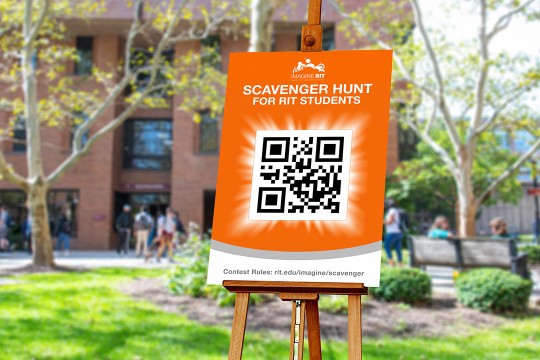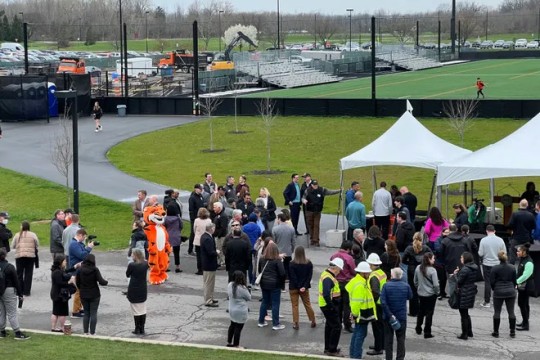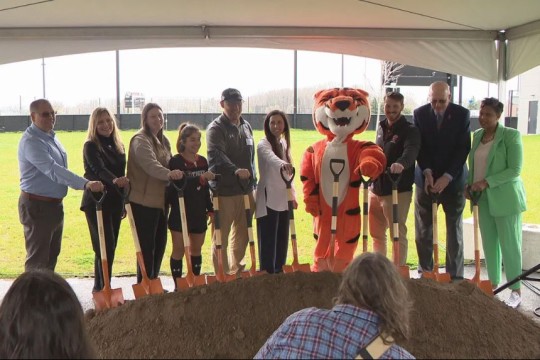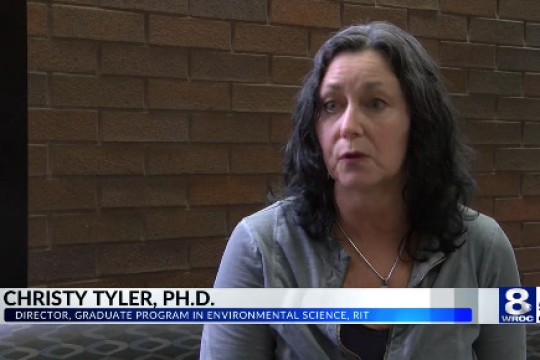Greenway GreenRide and Bike Summit to Mark International Day of Climate Action
Organizers hope Oct. 24 event ignites a transformation of Greater Rochester
Sixty percent of car trips in Greater Rochester are shorter than five miles in length. Those short trips—because starting a car results in more pollution than driving a car—are also responsible for most of the area’s transportation pollution.
What can be done about it? A lot, if a group of students and faculty at Rochester Institute of Technology’s Center for Student Innovation has its way.
The group, says RIT professor Jon Schull, envisions turning Greater Rochester into a world-class bicycling region—a move that could create new industries, products and services while transforming the area. Their efforts begin this Saturday as part of RIT’s celebration of 350.org’s International Day of Climate Action.
The contingency from the Center for Student Innovation will join RIT President Bill Destler, his wife Rebecca Johnson and bicycling and environmental enthusiasts from across the area for the first Greenway GreenRide, a bicycle excursion that begins at 11 a.m. at Rundel Library in downtown Rochester and ends at the RIT Center for Student Innovation.
The ride culminates with the first Rochester Bike Summit, which takes place at 2 p.m. in the Center for Student Innovation. Participants will discuss a number of bicycle and alternative energy initiatives, including a first-of-its-kind year-round transit way for bikes and ultra light electric vehicles, the Rochester Greenway.
Schull, who has already co-authored an essay and two related New York State Energy and Research Development grant proposals on the topic, says the proposed Rochester Greenway would begin in downtown Rochester along the Genesee River, go past the University of Rochester, through Genesee Valley Park, down Lehigh Valley North Trail to RIT. One vision of the project entails one-way bike tubes that would allow riders to travel down-wind in either direction. Another vision consists of a five-mile long canopy that would provide shade in the summer and shed snow in the winter.
Groups at RIT are already developing experimental electric bicycles that would be ideal for such a greenway. These bicycles are not yet available commercially.
“The Rochester Greenway concept has already been received sympathetically by a number of civic and governmental organizations,” Schull says. “We hope our next step will be some official feasibility studies. If the project is deemed feasible, we could seek federal funding.”
While pursuing the Greenway proposal, Schull encountered a number of groups and initiatives within the Greater Rochester community that are independently expanding the area’s bicycling ecology in innovative ways. The Rochester Bike Summit is designed to bring these people, along with others in the community, together.
In addition to discussing the Greenway and other initiatives, the summit will include free bicycle maintenance, exhibits on pedal power and bicycles as energy-conservation solutions, an ultra-wide screen short video describing Rochester’s potential as a world-class center for recreational and functional transport, and free rides on electric bikes.
The Greenride and Rochester Bike Summit are free and open to the public. Those interested in participating can contact Schull at schull@digitalgoods.com.
Media opportunity: Students and faculty from RIT’s Center for Student Innovation will test-ride the Rochester Greenway route on electric vehicles at 2 p.m. Oct. 22. The bicycles will be equipped with an experimental multi-camera rig to capture footage for the ultra-wide screen video short to be shown at the Rochester Bike Summit. Media interested in speaking to these individuals should contact John Follaco at 585-475-4948.














